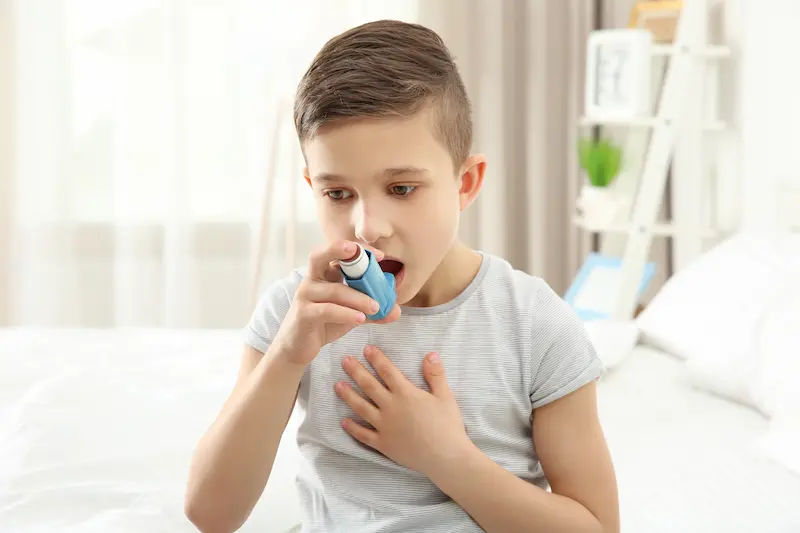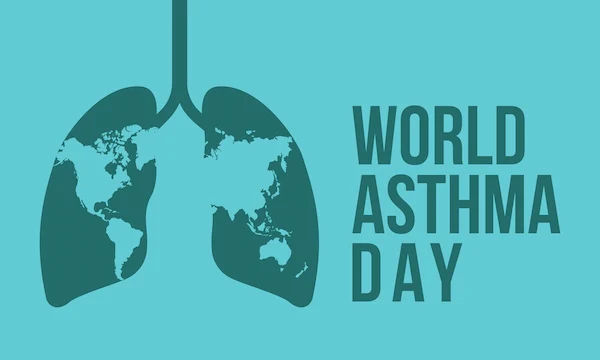What Leads To Signs Of Asthma And Treatment
Discover the common triggers and signs of asthma, from wheezing to coughing. Learn about effective treatments, including quick-relief inhalers and long-term control medications, to manage your symptoms and improve your quality of life.


Introduction
Asthma is more than just occasional shortness of breath; it's a chronic respiratory condition that affects the airways, making it difficult to breathe for millions of people worldwide. If you or a loved one has ever experienced a tight chest, a persistent cough, or a whistling sound when breathing, you might be familiar with the signs of asthma. This condition causes the airways to become inflamed, swollen, and narrow, leading to a variety of uncomfortable and sometimes frightening symptoms. But what actually leads to this inflammation? And more importantly, how can it be managed effectively? This comprehensive guide will walk you through the fundamental causes, help you identify the key symptoms, and explore the modern treatment strategies that allow individuals with asthma to live full, active lives. Understanding these elements is the first crucial step toward taking control of your respiratory health.
What is Asthma, Exactly?
Asthma is a long-term disease of the lungs that causes your airways to become inflamed and narrow. Think of your airways as a series of branching tubes that carry air in and out of your lungs. When you have asthma, these tubes are chronically sensitive and irritable. This hyper-responsiveness means they can overreact to certain substances or situations, which are known as triggers.
When exposed to a trigger, three key things happen inside the airways: first, the muscles surrounding them tighten (a process called bronchospasm). Second, the lining of the airways becomes swollen and inflamed. Third, the cells in the airways may produce excess mucus, which is thick and sticky, further clogging the already narrowed passages. This combination of factors makes it extremely difficult for air to flow freely, leading to the classic symptoms of an asthma attack.
The Mechanics of an Asthma Attack
An asthma attack is the acute worsening of these symptoms. It can come on gradually over hours or days, or it can strike suddenly. During an attack, the narrowing of the airways becomes severe. Oxygen struggles to enter the bloodstream, and carbon dioxide has difficulty leaving the body. This results in the feeling of gasping for air, panic, and the physical manifestations of wheezing and coughing as the body fights to clear the obstruction and draw in oxygen.
Consult Top Specialists
The Most Common Signs and Symptoms of Asthma
Recognizing the signs of asthma is vital for early diagnosis and management. The symptoms can vary from person to person and even from episode to episode in the same individual. They can be mild one day and severe the next. The most common asthma symptoms in adults and children include:
- Shortness of breath: Often occurring during physical activity or even at rest during a more severe attack.
- Chest tightness or pain: A feeling as if someone is sitting on your chest or a band is tightening around it.
- Wheezing: A high-pitched whistling sound that occurs when you breathe out. It's one of the most recognizable signs of an asthma attack.
- Coughing: A persistent cough, often worse at night or early in the morning. This asthma cough can be the main symptom for some people ("cough-variant asthma").
Recognizing Asthma in Children
Diagnosing asthma in young children can be challenging. Signs of asthma in toddlers often include:
- Frequent coughing that worsens during play, laughter, or at night.
- Less energy during play, pausing to catch their breath.
- Rapid or labored breathing.
- Complaints of chest tightness or "tummy aches."
- A whistling sound (wheezing) when breathing in or out.
When to Seek Emergency Care
It's crucial to know when symptoms become a medical emergency. Seek immediate help if:
- You are struggling to breathe or gasping for air.
- Your quick-relief inhaler (like albuterol) provides no improvement.
- You cannot speak in full sentences due to shortness of breath.
- Your lips or fingernails turn blue or grey (a sign of low oxygen).
- You feel drowsy, confused, or dizzy.
What Leads to Asthma? Unpacking the Causes and Triggers
The exact cause of asthma is not fully understood, but it's believed to result from a combination of genetic and environmental factors. It's not contagious; you can't catch it from someone else.
Genetic and Environmental Causes
A person is more likely to develop asthma if there is a family history of asthma, allergies, or eczema, suggesting a genetic predisposition. However, genes alone aren't enough. Environmental exposures early in life play a significant role. These include airborne allergens, viral respiratory infections, and exposure to tobacco smoke. The "hygiene hypothesis" suggests that living in too-clean environments in early childhood may prevent the immune system from learning to tell the difference between harmless and harmful substances, leading it to overreact to allergens.
Common Asthma Triggers to Avoid
While causes set the stage, asthma triggers are what actually provoke an attack. Triggers are highly individual, but common ones include:
- Allergens (Allergic Asthma)
- Pollen: From trees, grasses, and weeds.
- Dust Mites: Microscopic organisms found in household dust.
- Pet Dander: Skin flakes, saliva, and urine from furry pets.
- Mold Spores: Often found in damp areas.
Irritants
- Tobacco Smoke: A major irritant.
- Air Pollution: Including smog and vehicle exhaust.
- Strong Chemical Odors: From perfumes, cleaning products, and paints.
- Workplace Dusts and Fumes: (Occupational asthma).
Other Triggers
- Exercise: (Exercise-induced bronchoconstriction), especially in cold, dry air.
- Cold Air: Can cause airways to constrict.
- Stress and Strong Emotions: Laughing, crying, or yelling can trigger hyperventilation and an attack.
- Respiratory Infections: Like the common cold or flu.
How is Asthma Diagnosed?
If you experience symptoms, a doctor will use several methods to diagnose asthma and rule out other conditions. They will take a detailed medical history, ask about your symptoms and potential triggers, and perform a physical exam.
The Role of Lung Function Tests (Spirometry)
The most common test is spirometry. You blow into a device that measures how much air you can exhale and how quickly. The doctor may then give you a bronchodilator medication (like a rescue inhaler) and repeat the test. If your results improve significantly, it strongly suggests asthma.
Other Diagnostic Tools
Peak Flow Meter: A portable device you use at home to monitor how well your lungs are working daily.
Methacholine Challenge: A test that triggers mild airway narrowing in people with asthma.
Allergy Testing: To identify specific allergens that may be triggering your symptoms.
FeNO Test: Measures nitric oxide in your breath, a marker of airway inflammation.
If your symptoms are persistent or your diagnosis is unclear, consulting a pulmonologist online with Apollo24|7 can provide a specialist's opinion and help guide further testing.
A Comprehensive Guide to Asthma Treatment Options
Asthma has no cure, but its symptoms can be controlled effectively with the right asthma treatment plan. Treatment focuses on two main goals: preventing symptoms long-term and quickly relieving symptoms when they occur.
Quick-Relief Medications (Rescue Inhalers)
These are used for immediate relief during an asthma attack. They work by quickly relaxing the tightened muscles around your airways. Short-acting beta-agonists (SABAs) like albuterol are the most common. Everyone with asthma should carry a rescue inhaler.
Long-Term Control Medications (Preventive Inhalers)
These are the cornerstone of asthma management and are taken daily to prevent symptoms and attacks. They work by reducing underlying airway inflammation. The most effective are inhaled corticosteroids (e.g., fluticasone, budesonide). Other types include long-acting bronchodilators (LABAs), leukotriene modifiers, and combination inhalers.
Biologics for Severe Asthma
For people with severe, uncontrolled asthma, biologic therapies are a newer option. These are injected or infused medications that target specific antibodies or pathways in the immune system that drive inflammation.
The Importance of an Asthma Action Plan
Every person with asthma should work with their doctor to create a written asthma action plan. This personalized plan details what medications to take daily, how to recognize worsening symptoms, and what steps to take during an attack, including when to seek emergency care.
Consult Top Specialists
Lifestyle and Home Remedies for Asthma Management
While medication is essential, lifestyle changes can significantly improve control:
- Identify and Avoid Triggers: This is the most important step. Keep a diary to track what sets off your symptoms.
- Use Air Conditioning: Helps reduce indoor pollen and filters air.
- Clean Regularly: Use a vacuum with a HEPA filter to reduce dust mites and pet dander.
- Maintain Optimal Humidity: Use a dehumidifier if needed to prevent mold growth.
- Cover Your Nose and Mouth in Cold Weather: A scarf can warm the air before you breathe it in.
- Stay Healthy: Get a flu shot annually, as the flu can trigger severe asthma attacks.
Can Asthma Be Prevented?
There's no sure way to prevent asthma, but you can reduce the risk of attacks by carefully following your treatment plan. For parents, avoiding tobacco smoke exposure during pregnancy and after a child's birth may help reduce the risk of a child developing asthma symptoms. Early and consistent management is the key to preventing long-term lung damage.
Quick Takeaways
- Asthma is a chronic condition involving inflamed, narrow airways.
- Common symptoms include wheezing, coughing, chest tightness, and shortness of breath.
- Attacks are caused by triggers like allergens, irritants, exercise, and cold air.
- Diagnosis often involves a spirometry lung function test.
- Treatment includes daily controller meds and fast-acting rescue inhalers.
- A written Asthma Action Plan is essential for management.
- While not curable, asthma is highly controllable with proper treatment.
Conclusion
Living with asthma requires awareness and proactive management, but it should not define your life. By understanding the root causes of asthma, learning to identify your unique asthma triggers, and adhering to a modern, personalized treatment for asthma, you can achieve excellent control over your symptoms. This allows you to sleep through the night, exercise without fear, and participate fully in all the activities you enjoy. Remember, effective asthma control is a partnership between you and your doctor. If your symptoms are changing or your current inhalers aren't providing relief, it's crucial to seek professional guidance. You can consult a specialist online with Apollo24|7 to review your action plan and adjust your treatment for better control. Don't let asthma hold you back—take a deep breath and take control today.
Consult Top Specialists

Dr. Soumen Paul
General Physician/ Internal Medicine Specialist
24 Years • MBBS
Kolkata
MCR SUPER SPECIALITY POLY CLINIC & PATHOLOGY, Kolkata
(50+ Patients)

Dr. Khuda Baksh Nagur
General Physician/ Internal Medicine Specialist
11 Years • MBBS, MD (GENERAL MEDICINE), Certificate Programme clinicians in Diabetes Management
Bengaluru
Medwin multispeciality clinic, Bengaluru
(25+ Patients)

Dr. Swaroopa Rani
General Physician/ Internal Medicine Specialist
9 Years • MBBS, MD (Internal Medicine)
Bengaluru
Apollo Medical Center, Marathahalli, Bengaluru

Dr. Tanzeem Shajahan
General Physician/ Internal Medicine Specialist
7 Years • MBBS, MD (General Medicine)
Bengaluru
Medwin multispeciality clinic, Bengaluru

Dr. Rohit Basu
General Practitioner
8 Years • MBBS, DNB (General surgery)
East Midnapore
VIVEKANANDA SEBA SADAN, East Midnapore
Consult Top Specialists

Dr. Soumen Paul
General Physician/ Internal Medicine Specialist
24 Years • MBBS
Kolkata
MCR SUPER SPECIALITY POLY CLINIC & PATHOLOGY, Kolkata
(50+ Patients)

Dr. Khuda Baksh Nagur
General Physician/ Internal Medicine Specialist
11 Years • MBBS, MD (GENERAL MEDICINE), Certificate Programme clinicians in Diabetes Management
Bengaluru
Medwin multispeciality clinic, Bengaluru
(25+ Patients)

Dr. Swaroopa Rani
General Physician/ Internal Medicine Specialist
9 Years • MBBS, MD (Internal Medicine)
Bengaluru
Apollo Medical Center, Marathahalli, Bengaluru

Dr. Tanzeem Shajahan
General Physician/ Internal Medicine Specialist
7 Years • MBBS, MD (General Medicine)
Bengaluru
Medwin multispeciality clinic, Bengaluru

Dr. Rohit Basu
General Practitioner
8 Years • MBBS, DNB (General surgery)
East Midnapore
VIVEKANANDA SEBA SADAN, East Midnapore
More articles from Asthma
Frequently Asked Questions
Can asthma go away on its own?
While some children may see their symptoms lessen or disappear as they get older, asthma is generally a lifelong condition. Symptoms can go into remission for long periods, but the underlying tendency for airway inflammation often remains and symptoms can return later in life.
What is the difference between asthma and COPD?
Both cause breathing difficulties, but they are different diseases. Asthma often starts in childhood and is linked to allergies and triggers, with symptoms that come and go. COPD (Chronic Obstructive Pulmonary Disease) is usually caused by long-term smoking or air pollution exposure, is diagnosed later in life, and symptoms are more constant and progressive.
How can I stop an asthma cough at night?
Propping your head up with extra pillows, keeping your bedroom allergen-free by washing bedding in hot water, using a HEPA air purifier, and taking your prescribed long-term control medication consistently can help reduce nocturnal asthma cough. Avoid eating large meals right before bed.
Is there a best medicine for asthma?
There is no single 'best' medicine for everyone. The most effective medication depends on your age, symptoms, triggers, and the severity of your asthma. For most, a daily inhaled corticosteroid is the most effective long-term control medicine. Your doctor will determine the best option for you.
Can I exercise if I have asthma?
Absolutely! Exercise is encouraged for people with asthma. The key is to get your asthma under control first. Using your rescue inhaler about 15 minutes before exercise can prevent exercise-induced asthma symptoms. Choose activities with warm, humid environments like swimming, and always warm up and cool down properly.




